
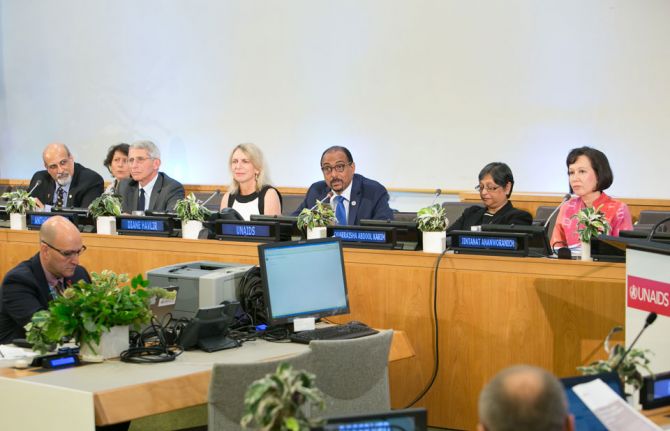
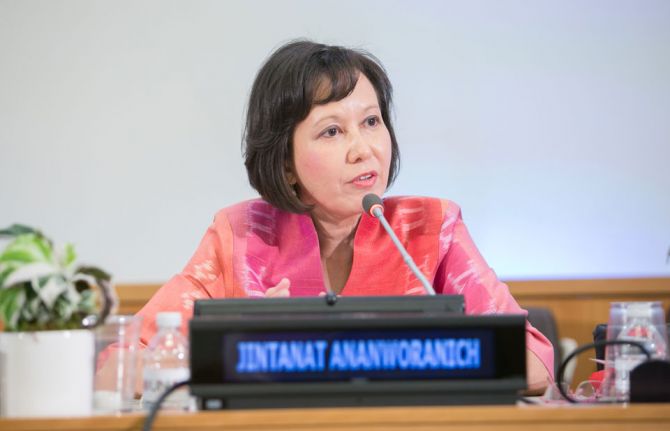
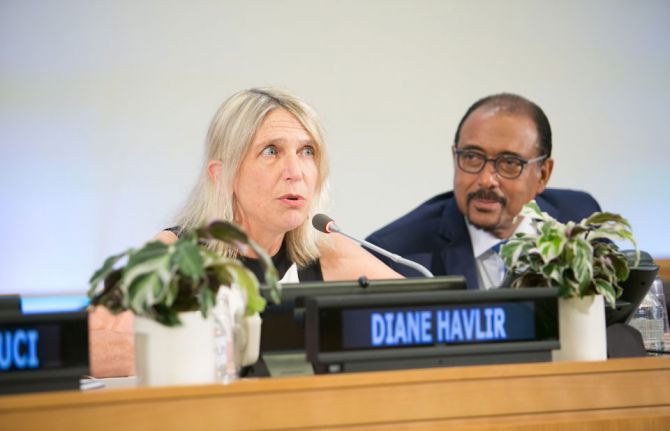
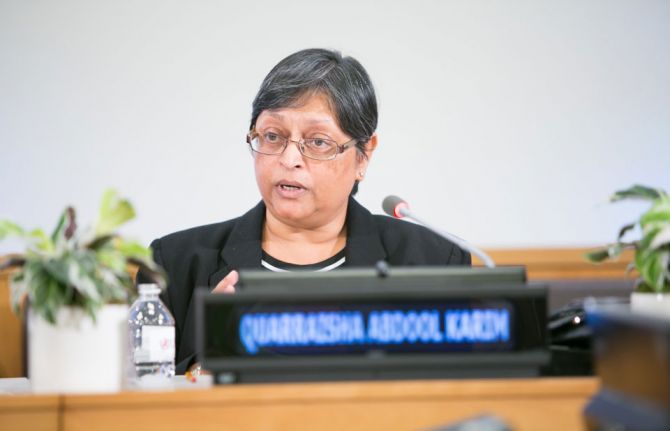
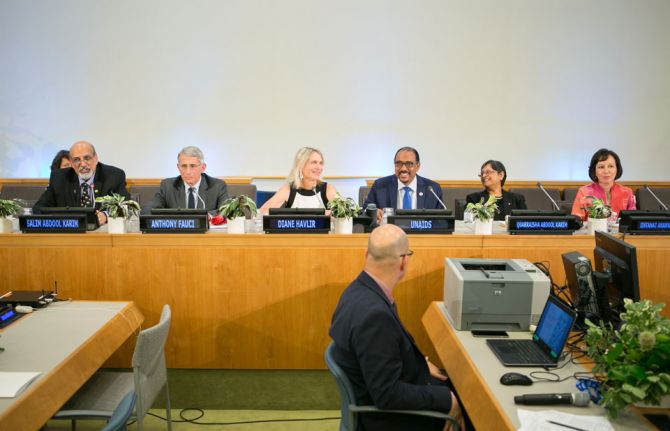
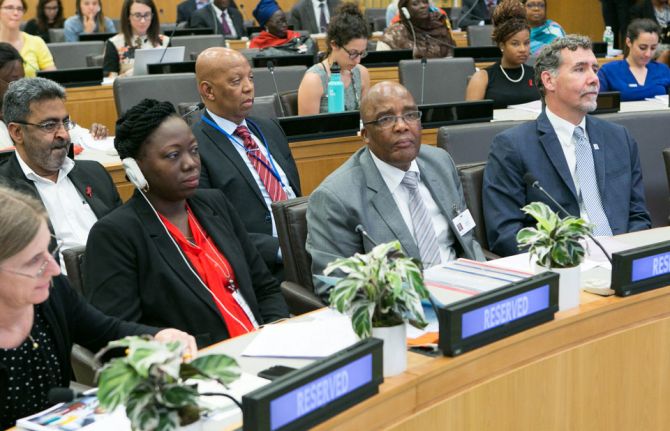
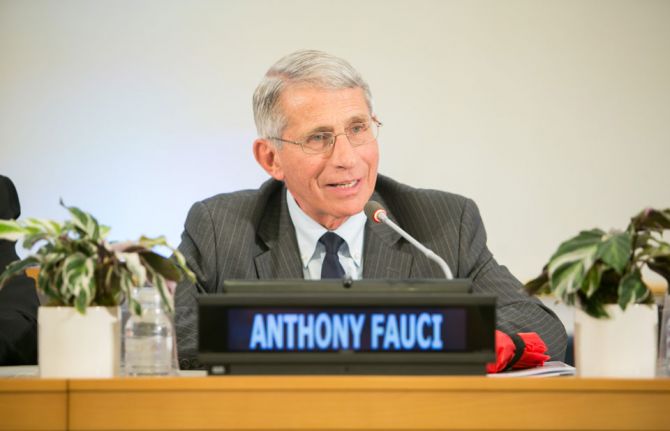
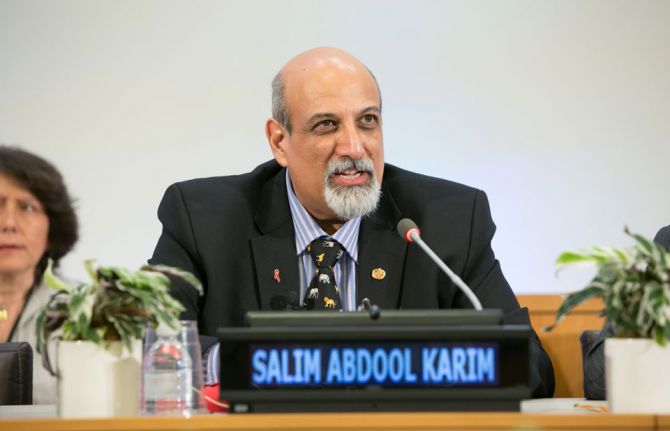
Update
The end of AIDS as a global health threat: science-based or science fiction?
07 June 2016
07 June 2016 07 June 2016Scientific progress will be essential to end the AIDS epidemic by 2030, according to participants at a side event held on the margins of the United Nations General Assembly High-Level Meeting on Ending AIDS, taking place in New York, United States of America, from 8 to 10 June.
The side event, held on 7 June, was entitled “The end of AIDS as a global health threat: science-based or science fiction?” It highlighted many of the successes achieved in treating and preventing the transmission of HIV as well as the remarkable progress made in only 35 years in understanding the virus.
The event was an opportunity to showcase anticipated scientific progress to underpin the Fast-Track vision. Participants presented ways in which research has been fundamental in shaping effective programmes and discussed whether current technologies can enable countries to reach a point where the AIDS epidemic is no longer a public health threat. Prevention, treatment, vaccines and a cure were all considered and it was concluded that the results of future research in all these domains, linked with current knowledge and behavioural and structural interventions, would be needed to achieve the end of AIDS.
There was stimulating and grounded discussion around the scientific results still required and the imperative to prioritize evidence-informed implementation of the results if AIDS is to be ended by 2030. In most regions of the world, progress has been made, since people living with HIV are living longer, but the number of new HIV infections is no longer decreasing and it was argued that the pace of any progress remains too slow.
The meeting heard that efforts were being made to reach people who might be left behind with treatment and prevention, but that these efforts were neither sufficiently supported nor appropriately ambitious. Success, it was claimed, will come through advancing science and using evidence-informed programmes to “do the right things at the right place, for the right people and in the right way.”
Quotes
Ending AIDS is our aspirational goal. On the road to getting there, we have set a benchmark: to end it as a public health threat. To reach a point where HIV incidence is systematically decreasing and efforts that have been put into place are bearing fruit.
The history of the HIV response has been rooted in taking scientific results and telescoping the time to putting them into action. Studying their implementation leads to more questions which have been quickly picked up by the research community. We can be optimistic that this rapid feedback loop will continue to enhance the relevant research and action to end the HIV epidemic.
What will ultimately end this epidemic is science. Science systematically takes us on a path to the end of AIDS. It is time to strengthen efforts against stigma and discrimination, to bring together everything we are learning and link it with behavioural and structural programmes.
The science that has been achieved over the past 35 years has been nothing short of breathtaking. We now have 17 million people receiving lifesaving therapy, yet we still need to do much better. No more excuses, we have the tools to end the epidemic: it is up to us to do it.
Related information
Find out more about the #HLM2016AIDS



